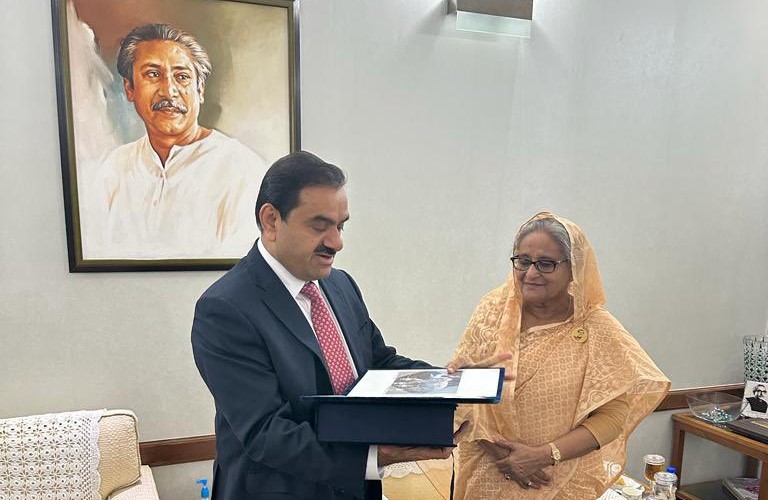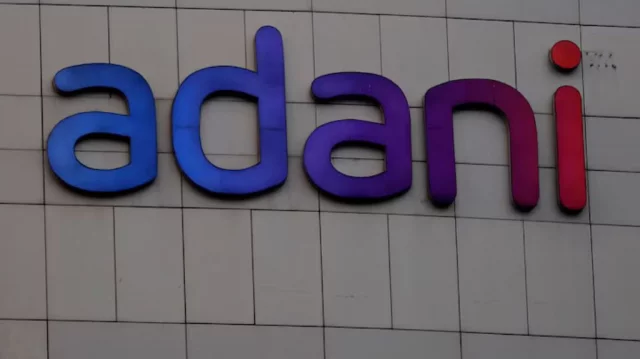With the interim government in Dhaka signaling a potential review of its 2017 agreement with Adani Power, the company is now considering alternative plans to sell electricity within India, report Indian Express.
In line with this, its 1600 MW thermal plant in Godda, Jharkhand, which currently supplies all its power to Bangladesh, has secured approval for a connection to the Indian grid via a substation in Lakhisarai, Bihar.
However, this connection will only be activated once Adani Power Jharkhand Ltd (APJL) completes the construction of a 130-km transmission line and additional infrastructure at the substation— a process APJL acknowledged would take “considerable time.”
APJL had earlier requested an “expedited connection to the Indian grid” through a temporary link to a closer substation in Banka, just 30 km from the Godda plant, but this was rejected by the Central Transmission Utility of India Ltd (CTUIL), citing technical limitations. The national transmission planning authority suggested that APJL explore alternative connection options for further discussion.
Read More: https://thereport.live/bangladesh/bpdbs-outstanding-bills-surge-to-tk-45000-crore/31400
After approval for grid connectivity was granted, West Bengal’s state transmission utility warned CTUIL that connecting the Godda plant could overload critical transmission infrastructure in the region. CTUIL acknowledged the system was already under significant strain but stated the additional load from the Godda plant would be minimal. They also noted that upgrades to a key high-voltage transmission line were already in progress.
The Ministry of Power had recommended connecting the Godda plant to the Indian grid on August 10, two days after Dr. Muhammad Yunus assumed office as Bangladesh’s Chief Adviser, citing “emerging geopolitical tensions in Bangladesh and outstanding payment dues.” Four days earlier, APJL had informed the ministry that allowing the Godda plant to supply power to India would be beneficial during times when the Bangladesh Power Development Board (BPDB) reduces demand, defaults on the agreement, or faces geopolitical challenges.
A senior official from the interim Bangladeshi government stated that the power purchase agreement (PPA) with Adani Power would be reviewed to assess whether the current pricing is justified. When approached for comment, Adani Group did not respond.
On August 12, India’s Ministry of Power amended the guidelines for cross-border electricity trade, allowing domestic plants that supply power exclusively to neighboring countries—such as Adani’s Godda plant—to sell power within India. That same day, the ministry directed regulatory bodies, including CTUIL, to draft standard operating procedures for granting connectivity to such plants. The proposal for connecting the Godda plant to India’s grid was discussed and approved by CTUIL during a special meeting on August 21, where it was decided that APJL would construct a 400-kilovolt transmission line to the Lakhisarai substation to operationalize the connection.

APJL expressed concerns about the time required to complete the 130-km line to Lakhisarai and proposed a temporary connection to the nearby Banka substation. However, CTUIL rejected the request due to technical issues and advised APJL to consider other options, which would be studied and discussed in future meetings.
In July last year, Gautam Adani met with Bangladesh’s former Prime Minister Sheikh Hasina following the commencement of full-load power supply from the Godda Ultra Super-Critical Thermal Power Plant (USCTPP). The plant, which began supplying electricity to Bangladesh in April 2023, is the only facility in India to export its entire output to a neighboring country. The deal was initially agreed upon during Prime Minister Narendra Modi’s 2015 visit to Dhaka. However, activists in Bangladesh have long criticized the agreement, arguing that the high cost of power from Godda is economically unviable.
Earlier this month, Adani Power warned Bangladesh’s interim government that the $500 million backlog in unpaid dues for power from the Godda plant was becoming “unsustainable,” as reported by the Financial Times. When asked about the possibility of a review by the Bangladeshi government, an Adani Power spokesperson told The Indian Express: “We have no information of the Bangladesh government reviewing our PPA. In the spirit of true partnership, we continue to supply power to them despite the massive outstanding owed to us. We are in constant engagement with the Bangladesh authorities and have requested early liquidation of our dues, as it is making our operations unsustainable.”
Key timeline of events:
- AUG 5: Sheikh Hasina resigns
- AUG 6: Adani Power Jharkhand Ltd requests approval to sell power in India
- AUG 8: Muhammad Yunus sworn in as Chief Adviser of Bangladesh
- AUG 10: Ministry of Power recommends Godda plant’s grid connectivity
- AUG 12: Ministry of Power amends rules, allowing the Godda plant to sell power in India
- AUG 21: Transmission authority holds special meeting and grants grid connectivity approval.










-20260225072312.webp)









-20260224075258.webp)











-20260219054530.webp)
-20260218060047.jpeg)